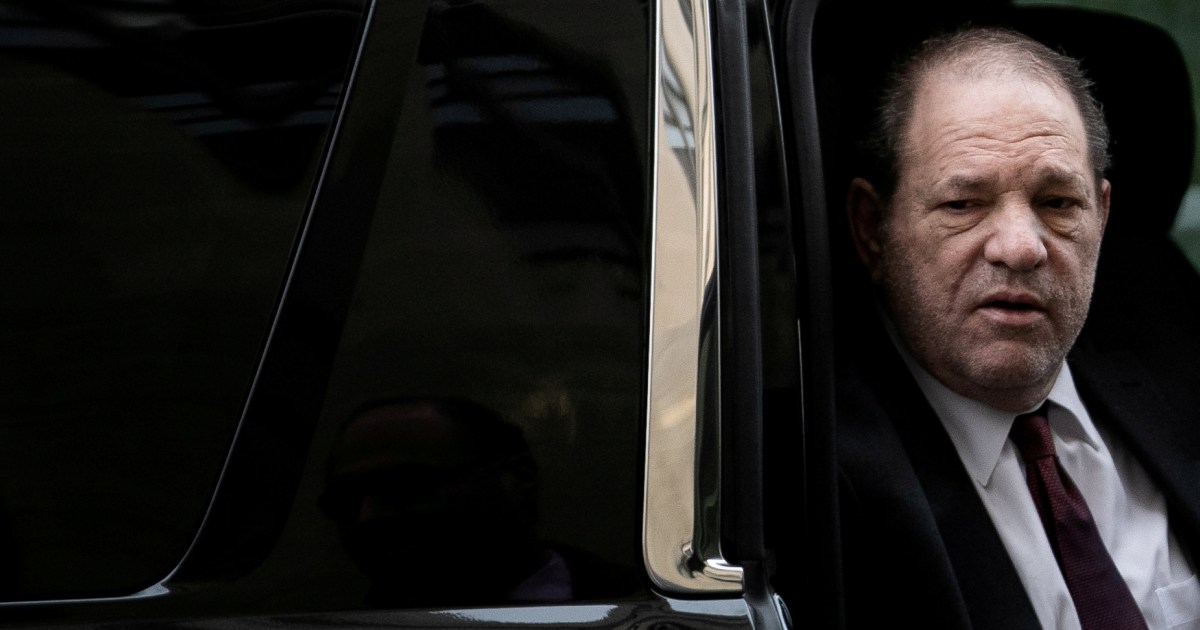
[ad_1]
Almost three years after the bankruptcy of the Weinstein Co., a judge on Monday confirmed a liquidation plan providing a fund of $ 17.1 million for accusers of sexual misconduct of Harvey Weinstein.
The plan also provides former officers and directors of Weinstein Co. $ 9.7 million, allowing them to pay some of their legal bills over the past several years. The directors and officers – which include Weinstein’s brother Bob, as well as James Dolan, Tarak Ben Ammar and Lance Maerov – have also received releases exonerating them of any potential liability for allowing Weinstein’s conduct.
US bankruptcy judge Mary Walrath approved the plan after a hearing in Delaware, saying without the settlement Weinstein’s accusers would get “minimal or no recovery.”
The liquidation plan ends a controversial and long-standing legal fight over the remnants of Weinstein’s independent studio. The business collapsed in late 2017, following the disclosure of dozens of allegations of rape, sexual assault, harassment and other misconduct.
Several insurance companies will pay a total of $ 35.2 million to settle all remaining claims, including those from commercial creditors of Weinstein Co.
The $ 17 million fund will be split among more than 50 claimants, with the most serious allegations resulting in payments of $ 500,000 or more. The settlement was put to a vote by Weinstein’s accusers, with 39 votes in favor and eight against.
Ruby Liu, a lawyer representing opponents, argued Monday that the settlement fund is “meager” and that the deal denies its clients the opportunity to sue Bob Weinstein and other administrators in court.
“My clients are looking for more than monetary considerations,” she said. “They’re looking for a conclusion from a jury that holds all parties accountable. It’s not just Harvey Weinstein.”
Paul Zumbro, an attorney representing the Weinstein Co. estate, argued that the deal was the best possible for the accusers. Without freeing the directors and officers, the insurance companies would not have been willing to pay.
Several lawyers who have supported the plan have argued that it is better to give the majority of claimants a “closure” rather than forcing all claimants to endure years of litigation for an uncertain outcome.
“This is the best we can do,” said Debra Grassgreen, counsel for the Unsecured Creditors Committee.
An earlier version of the settlement would have provided a payment of $ 24.3 million to accusers, including women who claimed to have been abused during the “Miramax” era, which predated 2005. But Judge Alvin Hellerstein has rejected the deal, saying the class action lawsuit included The Miramax-era accusers were not viable. The regulations were then revised to exclude Miramax, Disney and their insurers.
Part of the payment of defense costs was originally intended for Harvey Weinstein’s defense. This funding was taken out of the plan. Civilian plaintiffs still have the option of suing Harvey Weinstein in civil court, although most of the lawyers involved believe he has few assets that could be recovered.
Most of Weinstein’s Co.’s assets were sold in 2018 to Lantern Capital, a Dallas-based private equity firm, for $ 289 million. These funds were used to pay the secured creditors of the company.
[ad_2]
Source link